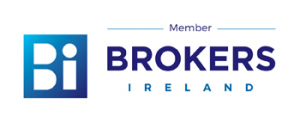In this edition of Irish Building Magazine, Susan O’Mara, Financial Services Consultant with Milestone Advisory gives some tips on financial changes we can make to help improve our financial health in 2019.
If you are one of those rare people who is doing everything right with their money, this article is not for you. For the rest of us, here are 6 tips that are simple to do and will make a big difference to your financial health.
 Budget: To maximise the efficiency of your money, it helps to know what you have. Most of us have some idea of our income vs our outgoings. We know our income, and our fixed expenditure such as the mortgage. However, achieving a more realistic picture requires a little more effort. You will need to look at outgoings that only happen on a quarterly or less frequent basis. You will need to be realistic and account for costs that will fall under a “Lifestyle” section, if you regularly attend a sports fixture or the theatre; it needs to go in the budget. All banks have online facilities that provide statements going back a year or more, and the frequency with which we use debit cards (and the tap facility) means that a lot of the data is readily available to look back at our spending habits. You may find you have a regular deficit, and if so, this should be addressed immediately. Knowing your spending habits may help you to take a more practical approach to your budget.
Budget: To maximise the efficiency of your money, it helps to know what you have. Most of us have some idea of our income vs our outgoings. We know our income, and our fixed expenditure such as the mortgage. However, achieving a more realistic picture requires a little more effort. You will need to look at outgoings that only happen on a quarterly or less frequent basis. You will need to be realistic and account for costs that will fall under a “Lifestyle” section, if you regularly attend a sports fixture or the theatre; it needs to go in the budget. All banks have online facilities that provide statements going back a year or more, and the frequency with which we use debit cards (and the tap facility) means that a lot of the data is readily available to look back at our spending habits. You may find you have a regular deficit, and if so, this should be addressed immediately. Knowing your spending habits may help you to take a more practical approach to your budget.- Bank Charges: What do you currently pay your bank in charges? When doing your budget, did you consider the amount you are paying in bank charges? The most expensive Irish bank comes in at over €200 per annum. Establish what your charges are, and if there are conditions to be met in order to avoid them. If you cannot meet the conditions, find another bank with conditions you can meet or with lower charges. If you’re saving €200 per annum, you may be able to increase your protection levels without increasing your expenditure. This leads nicely into point number 3…
- Review your Protection requirements and costs: Where you are in your financial life cycle will help clarify what level and type of protection you need. If you have no family and no debt, you may only require income protection – to replace an income if you were unable to work due to illness or injury. On the other hand, if you have a family and mortgage, you are likely to need a combination of Life Cover, Income Protection and Serious Illness cover. Balance is key and you should speak to a financial adviser to ensure you are not over covered in one area and under covered in another.
- Retirement Planning: If you are not participating in a retirement savings scheme or pension plan, now is the time to take action. Asides from income in retirement there are other incentives such as Income Tax Relief, which remains at your marginal rate of tax. This means at the higher rate of tax that a contribution of €1,000 into your arrangement will only cost you €600. In effect, it’s like getting €400 extra from the government. Why pass this up?
 If you can, start early “the early bird catches that worm” the sooner you start making contributions the better. The benefit of the tax free investment growth over the years has the magical power of compound interest and it’s very effective. If you are already in a scheme or plan – do you know the value of your fund? Do you know what it will provide for you at your retirement age? If not, find out. All providers send members an annual benefit statement – this document provides you with a fund value as well as an estimate of what your pension fund will be worth when you reach retirement. Some of the better providers also allow you access to this online.
If you can, start early “the early bird catches that worm” the sooner you start making contributions the better. The benefit of the tax free investment growth over the years has the magical power of compound interest and it’s very effective. If you are already in a scheme or plan – do you know the value of your fund? Do you know what it will provide for you at your retirement age? If not, find out. All providers send members an annual benefit statement – this document provides you with a fund value as well as an estimate of what your pension fund will be worth when you reach retirement. Some of the better providers also allow you access to this online.
Now that you’ve done your budget, you have an idea of your income requirements and what they might be in retirement, assuming you wish your lifestyle to remain the same. What is the difference between your ideal income in retirement and the projection on your benefit statement? Do you need to bridge the gap? Even a small regular additional voluntary contribution (AVC) can achieve this in the long term. If you are close to retirement, it may be less about making contributions and more about planning which option suits you best – Annuity or ARF – you should engage with this decision now and not leave it until the day you hit the golden age!
Savings
I recently read an article on a piece that featured an interview with Warren Buffet – he had a piece of advice, which was interesting; “Pay yourself first”. What he is essentially saying is: don’t save whatever is left over – set aside savings before you pay bills – otherwise, you might never save. Sound advice from one of the world’s richest men – the piece also featured this quote from Mr Buffet “the biggest mistake is not learning the habits of saving properly, early”. Of course, even if you haven’t lived Buffet’s way, you can teach your children now, as my own father would have said, do what I say, not what I do!
Health Insurance
 A very important insurance, which can also be very costly. As with ALL insurances, we hope we never have to use it, but it remains a must have. Rather than simply renew this cover every year, shop around. The Health Insurance Authority has a very helpful comparison tool on their website which will eliminate much of the time and hassle comparing plans. It works for your motor insurance, it will work for this.
A very important insurance, which can also be very costly. As with ALL insurances, we hope we never have to use it, but it remains a must have. Rather than simply renew this cover every year, shop around. The Health Insurance Authority has a very helpful comparison tool on their website which will eliminate much of the time and hassle comparing plans. It works for your motor insurance, it will work for this.
These tips are not revolutionary, but they are practical and will benefit you in the long run.
Here to help you navigate your way to financial security.
The Milestone Advisory team are qualified financial services consultants. We specialise in helping professionals in the construction sector and related industries. Our team will work with you to review your finances, explaining your options in clear English.
No jargon – just the facts.
For further information please contact Susan O’Mara via email or phone: (01) 406 8020. Milestone Advisory DAC t/a Milestone Advisory is regulated by the Central Bank of Ireland.





